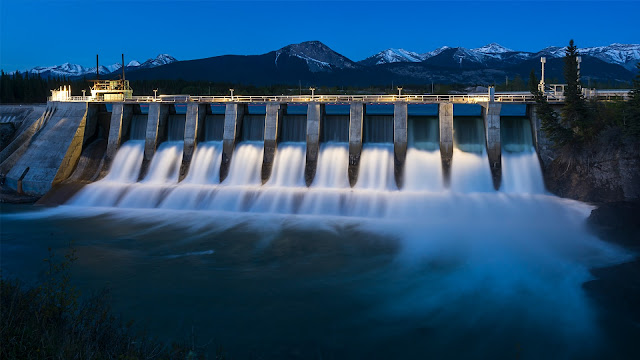The Role Of Hydropower In Renewable Energy Generation
Hydropower, also known as hydroelectric power, is the generation of electricity from the movement of water. This energy source has been used for centuries, but it wasn't until the late 19th century that it became a major source of electricity. Hydroelectric power plants use the energy of falling water to generate electricity. The water is directed through turbines that are connected to generators that produce electricity.
Hydroelectric power is a renewable energy source that has many advantages over other forms of energy. It is a clean, renewable source of energy that does not produce greenhouse gases or other harmful pollutants. It is also reliable and predictable, as it can be generated whenever there is water flow, which makes it an excellent source of base load power.
The worldwide Hydropower Market was estimated to be worth US$ 201.4 billion in 2021 and is anticipated to grow at a CAGR of 5.9% from 2022 to 2030 to reach US$ 337.7 billion.
Hydroelectric power plants can be classified into two types: conventional and pumped storage. Conventional hydroelectric power plants use the natural flow of water to turn turbines, which are connected to generators that produce electricity.
Pumped storage hydroelectric power plants, on the other hand, use excess electricity to pump water from a lower reservoir to a higher reservoir. This water is then released to generate electricity during times of peak demand.
Solar Photovoltaic (PV) is a technology that converts sunlight directly into electricity. It involves the use of solar cells to capture the energy from the sun and convert it into usable electricity. Solar PV is a clean and renewable energy source that can be used to power homes, businesses, and other facilities.
There are many benefits to using hydroelectric power. One of the most significant benefits is that it is a renewable energy source. Unlike fossil fuels, which are finite and will eventually run out, hydroelectric power is constantly replenished by the water cycle. Hydroelectric power is also very efficient, with conversion rates of up to 90 percent. This means that nearly all of the energy in the falling water is converted into electricity.
Hydropower is also very reliable. Because it is based on the natural flow of water, it can be generated 24 hours a day, seven days a week. This makes it an excellent source of base load power. Hydroelectric power is also very predictable, as it can be generated whenever there is water flow. This makes it an excellent source of renewable energy for areas that have consistent rainfall and water flow.




Comments
Post a Comment